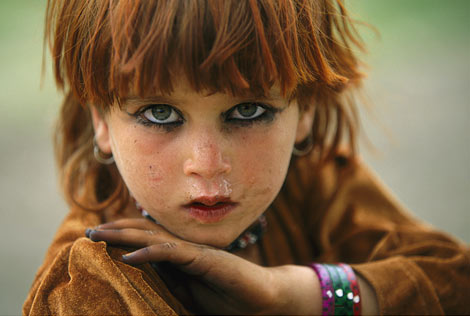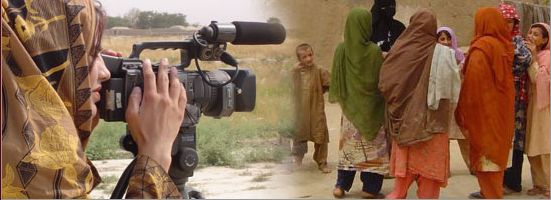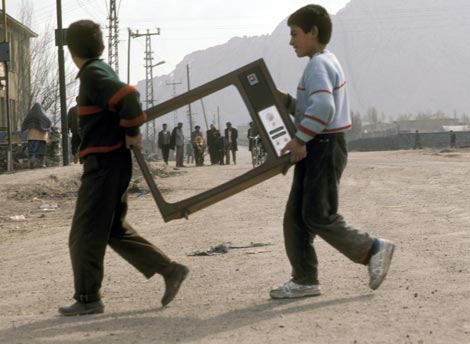We all maintain ardent opinions about the American invasion of Iraq and Afghanistan as well as the subsequent and seemingly endless wars, but how much do we actually know about these regions and their daily struggles? A holier-than-thou we-command-all kind of attitude from the “liberators” doesn’t imply they understand what the people of war-torn Iraq and Afghanistan really need.
Admittedly, I was against the war for many reasons but never really took the time to learn more about not only the regions our troops were invading but also the lives of their people. For the last few weeks, I’ve been volunteering for Aina, a Paris-based NGO & non-profit founded in 2001 by Reza, the world-renowned Iranian photojournalist and National Geographic Fellow. They do amazing work in Afghanistan and are committed to fostering civil society through education, communication and the dissemination of information. With a particular focus on women and children, Aina trains and supports locals in new communication technologies and media in order to ensure the development of local Afghan media structures.
One such success since the inception of the organization is the film “Afghanistan Unveiled”, the first documentary filmed and produced by an all female team of video journalists trained by Aina. The film uncovers the effects on women and children of the Taliban’s oppressive rule and the US sponsored bombing campaign. Nominated for an Emmy award in 2005, it is an unbelievably gripping and moving film the showed an Afghanistan that most Americans have never seen. Most of the women were merely trying to survive and support their children after witnessing the Taliban massacre and torture their husbands. During the film, I couldn’t help but think to myself, you have no reason to complain about your life ever again, which I believe is a normal reaction. But this always happens, doesn’t it? Our eyes are opened for a fleeting moment, filling us with resolve and gratitude, but then just as soon as these feelings come to the surface, the woe-is-me returns shortly after.
I was talking about this with my friend Halla who was born in Saudia Arabia and has her own very strong opinions about the Middle East, the war and the inherent problem with America thinking they can go in and “liberate” a people that don’t share the same definition of freedom. She attended a lecture last year given by a female Afghani journalist at the university during which someone in the audience asked something to the effect of “We liberated Afghanistan, why aren’t the women taking off their veils?” to which the journalist responded that Westerners all share the same misguided notion that what works for them will work for a culture that has a completely different belief system and interpretation of freedom, rights and certainly liberation. For women, taking off the veil isn’t the issue at all, it’s about surviving, feeding their families, education, establishing a career. Halla said that the oppressive treatment of women that has so frequently been depicted by the Western media, in addition to this obsession with the veil, really came about with the Taliban insurgence. We assume that other cultures will appropriate our customs, beliefs and rules to live by and then categorize them as the dangerous “other” when they don’t react as expected.
I’m ashamed to say that I’ve known very little about how much the people are suffering in Afghanistan but I feel good about helping in the way that I can knowing that if anything, I will become a better informed global citizen as a result.














